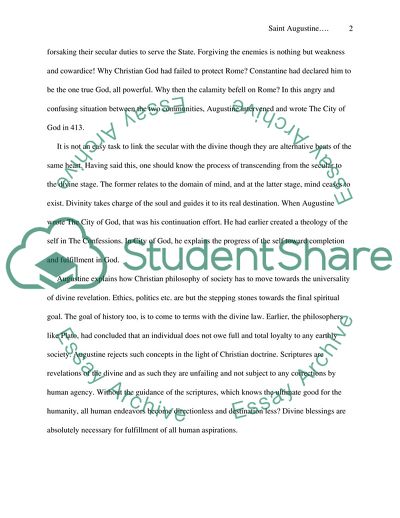Cite this document
(Saint Augustine's The City of God Critique Book Report/Review Example | Topics and Well Written Essays - 1500 words, n.d.)
Saint Augustine's The City of God Critique Book Report/Review Example | Topics and Well Written Essays - 1500 words. https://studentshare.org/history/1723767-saint-augustine-the-city-of-god
Saint Augustine's The City of God Critique Book Report/Review Example | Topics and Well Written Essays - 1500 words. https://studentshare.org/history/1723767-saint-augustine-the-city-of-god
(Saint Augustine'S The City of God Critique Book Report/Review Example | Topics and Well Written Essays - 1500 Words)
Saint Augustine'S The City of God Critique Book Report/Review Example | Topics and Well Written Essays - 1500 Words. https://studentshare.org/history/1723767-saint-augustine-the-city-of-god.
Saint Augustine'S The City of God Critique Book Report/Review Example | Topics and Well Written Essays - 1500 Words. https://studentshare.org/history/1723767-saint-augustine-the-city-of-god.
“Saint Augustine'S The City of God Critique Book Report/Review Example | Topics and Well Written Essays - 1500 Words”. https://studentshare.org/history/1723767-saint-augustine-the-city-of-god.


